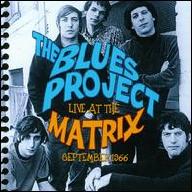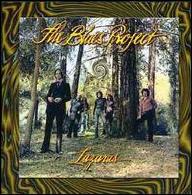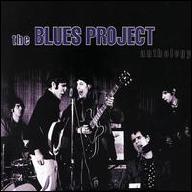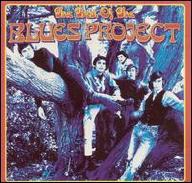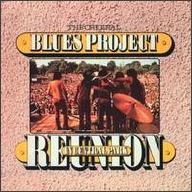The Blues Project was formed in Greenwich Village in the mid-'60s by guitarist Danny Kalb (who had played sessions for various Elektra folk and folk-rock albums), Steve Katz (a guitarist with Elektra's Even Dozen Jug Band), flutist/bassist Andy Kulberg, drummer Roy Blumenfeld, and singer Tommy Flanders. Al Kooper, in his early twenties but already a seasoned vet of rock sessions, joined after sitting in on the band's Columbia Records audition, although they ended up signing to Verve. Early member Artie Traum (guitar) dropped out during early rehearsals; Flanders would leave after their first LP, Live at the Cafe Au-Go-Go (1966).
The eclectic résumés of the musicians, who came from folk, jazz, blues, and rock backgrounds, were reflected in their choice of material. Blues by Muddy Waters and Chuck Berry tunes ran alongside covers of contemporary folk-rock songs by Eric Anderson and Patrick Sky, as well as the group's own originals. These were usually penned by Kooper, who had already built songwriting credentials as the co-writer of Gary Lewis' huge smash "This Diamond Ring," and established a reputation as a major folk-rock shaker with his contributions to Dylan' mid-'60s records. Kooper also provided the band's instrumental highlights with his glowing organ riffs.
Though their live debut sounds rather tame and derivative, the group truly hit their stride on Projections (late 1966), which was, disappointingly, their only full-length studio recording. While they went through straight blues numbers with respectable energy, they really shone on folk- and jazz-influenced tracks like "Fly Away," Katz's lilting "Steve's Song," Kooper's jazz instrumental "Flute Thing" (an underground radio standard that's probably their most famous track), and Kooper's fierce adaptation of an old Blind Willie Johnson number, "I Can't Keep from Crying." A non-LP single from this era, the pop-psychedelic "N1o Time Like the Right Time," was their greatest achievement and one of the best "great hit singles that never were" of the decade.
The band's very eclecticism didn't augur well for their long-term stability, and in 1967 Kooper left in a dispute over musical direction (he has recalled that Kalb opposed his wishes to add a horn section). Then Kalb mysteriously disappeared for months after a bad acid trip, which effectively ended the original incarnation of the band. A third album, Live at Town Hall, was a particularly half-hearted project given the band's stature, pasted together from live tapes and studio outtakes, some of which were overdubbed with applause to give the impression that they had been recorded in concert.
Kooper got to fulfill his ambitions for soulful horn rock as the leader of the original Blood, Sweat Tears, although he left that band after their first album; BST also included Katz (who stayed onboard for a long time). Blumenfeld and Kulberg kept the Blues Project going for a fourth album before forming Seatrain, and the group re-formed in the early '70s with various lineups, Kooper rejoining for a live 1973 album, Reunion in Central Park. The first three albums from the Kooper days are the only ones that count, though; the best material from these is on Rhino's best-of compilation. Founding member Danny Kalb died on November 19, 2022 in Brooklyn, New York after a long illness; he was 80 years old. ~ Richie Unterberger, Rovi


